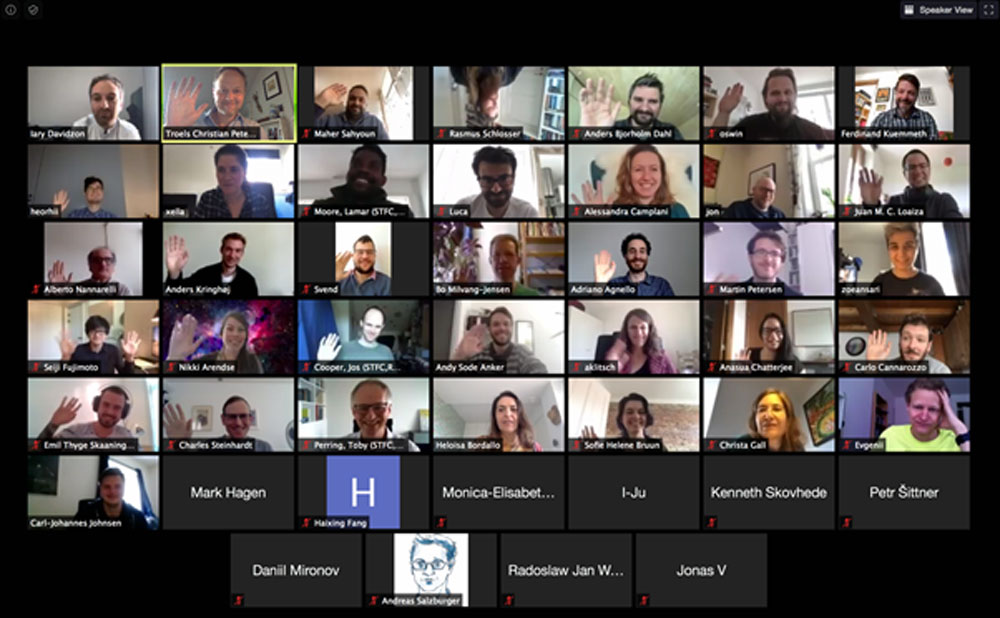Deep Learning online Workshop at the Niels Bohr Institute: Great Learning
Following the latest developments of the COVID 19 pandemic, the planned Workshop on Perspectives and Applications of Deep Learning for Accelerated Scientific Discovery in Physics (https://indico.nbi.ku.dk/event/1328/) was turned into an online event. This is the second event of a series, organized by the Niels Bohr Institute.

Online Workshop on Machine learning for accelerating Discovery in Physics, May 14-15, 2020, Organized by Niels Bohr Institute
DARK Cosmology (dr. Adriano Agnello), Subatomic Physics (dr. Stefania Xella and Troels C. Petersen) and X-Rays and neutron Scattering (dr. Heloisa N. Bordallo) sections of the Niels Bohr Institute lead discussions that involved about 60 researchers from different groups in Europe.
Four keynote plenary presentations kicked-off the event, from experts in the research fields of particle physics, neutron and X-ray scattering and astrophysics. The keynote speakers described the state-of-the-art usage of machine learning and highligthed the open questions.
Four panel discussions followed, concentrated on the following topics: Experiment control and design, Data collection reduction and analysis, Unsupervised learning, and Deep neural networks. During these panel discussions, the open questions were discussed among experts, and possible solutions outlined.
The goal of this workshop was two-fold: outline potential research avenues utilizing machine learning methods and relevant to Niels Bohr Institute groups, and enhance collaborations within NBI on these topics.
The workshop clearly outlined that the areas of research covered have lots of commonalities, from experiment design to data analysis, and we are all very interested in boosting our discovery potential by using machine learning. Therefore potential for fruitful and long-lasting collaborations is enormous. Furthermore, NBI has a substantial number of students very much interested on using machine learning to harvest breakthrough in Science, and several ideas for research projects were sparked by the discussions.
Finally, it was a unanimous conclusion that a workshop in person should be held next year, to present results of the research ideas, and to continue educating ourselves and our students on this tools, which are in very active development.
